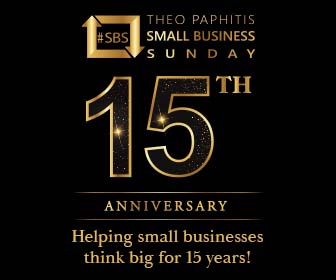How To Shop Ethically – A Guide by Paulomi from Handmade by Tinni
Most of us want to know that our actions, particularly our buying habits, are not harming our environment. We want to know that, but knowing is difficult. With so much mixed messaging and so much contradictory information, it can seem impossible to ever be sure. Especially since the research is time-consuming and we’re busy people right? Even I don’t have all the answers and I’ve done plenty of research. Especially when launching my eco-friendly jewellery business. Committed to making products that weren’t going to further harm the planet, I spent a considerable amount of time selecting and sourcing sustainable materials and perfecting traditional methods of jewellery craftsmanship. Still, as sustainability isn’t a black and white issue, we aren’t yet at a point where we can say one option is definitely better than its alternatives. There are too many components. Hence, why I’m calling this ‘How To Shop Ethically’ article a ‘guide’. Less of a set of rules and more things to consider as you shop if you are striving to do so ethically. I hope you find it useful and please do comment if you have any thoughts or knowledge to share – we are, after all, all still learning.
Materials
One of the biggest issues our planet faces is the inability to decompose the huge amount we throw away. What escalates this problem is our development of materials that are designed to last. Plastic is the material twitch the worst reputation. We built an incredibly strong durable substance and yet we make products from it designed for short term use. It’s impossible not to buy plastic, on occasion, but we are able to limit its use. Using a tote bag for groceries is an easy swap, as well as noticing the amount of packaging used in different supermarkets and taking this into account when deciding where to shop. Wooden toys are also a great alternative to plastic and, let’s be honest they look better too and are far more likely to be passed down or passed onto to other children when ours grow out of them.
Fast fashion is a real problem with 350,000 tonnes of wearable clothing going into landfil in the UK alone, every year. Polyester is considered the most damaging, taking up to 200 years to decompose, with linen and cotton taking between 2 weeks or 5 months on average. Clearly, there’s a great indication of which is the better choice there. However, the water that garments take to produce should also be taken into account. It gets a little trickier here because the harmfulness of this is linked to how many pollutants are added to this water to create the clothing. Dyes for instance and the microfibres that manmade materials contain do make their way back into our oceans. Harming marine life and entering the food chain too.
Therefore, the general guidance when choosing clothes is to source those closest to natural materials. Organic cotton, such as that used in my jewellery, is sustainable because it is biodegradable and does not require chemicals to produce.
Bamboo is big right now. Naturally growing and sustainable, bamboo is being used in toilet paper and for all sorts of products usually made from plastic or wood. Bamboo is preferable to hardwoods because it takes only 5 years for the plants to reach maturity. Yet, many bamboo products come with a higher price tag. Hopefully, this will decrease as demand increases so it is a great choice when budget allows.
Made To Last
It’s not reaching to say that we’re being duped on a daily basis into buying products that aren’t built to last. Hence forcing us to spend more money more often. Notice how your phone has incredibly advanced technology that enables you to access to almost any information, almost instantaneously, and yet the battery only lasts three years, if you’re lucky. Big tech has a lot to answer for in forcing customers into upgrading their products regularly, thereby creating unnecessary waste. But they’re not the only ones. Our grandparents aren’t wrong when they tell us that their generation kept their goods for decades. Yet, companies like Ikea worked out how to make furniture and homewares cheaper, meaning we had the option to replace them and redecorate every few years. It seemed great at the time, when very few people were even asking how this short-term use was going to affect the planet.
Now, most of us know one of the best things we can do for the environment is to buy products that last. Yet, this usually comes at a cost. Those living paycheck to paycheck will struggle to afford the higher price tags. Though spending more initially often saves us money in the long term, some of us don’t have this luxury. We saw this during the early stages of 2020 lockdown where social inequalities meant that we couldn’t all afford to bulk buy groceries. Meaning it was primarily the poorest faced with empty shelves.
The best we can do is start by making small changes. Invest in a couple of organic cotton jumpers as opposed to buying multiple polyester blends. Upcycle items that have gone out of style and buy quality furniture second hand. Changing habits is never easy but, done slowly, it is possible.
Business Practices
Unfortunately, this is a time-consuming one. None of us wants to be supporting companies that treat their employees badly, don’t practise fair trade or exploit poorer countries for their resources. Yet, it’s also important not to act on kneejerk reactions to social media claims that may be one-sided or not properly researched. Therefore, if want to know how to shop ethically then some research may be required occasionally. Of course, even with research, it can be a minefield. Yet, we can only be guided by the experts and so fair trade badges and sustainable stamps of approval are a reasonable asset to take into account. Greenwashing is making it more difficult to distinguish between companies actually committed to ethical practices and those masquerading as sustainable. So look to those who do have the time to delve into the truth behind the ‘eco-friendly’ tagline. There are some great resources available and some honest experts to follow.
Giving Back
The rise of online shopping has given companies the opportunity to tell us more about who they are and what they stand for. Generation Z is particularly grateful since they rank company values as a key influence when selecting where they chose to spend their money.
Even small businesses making small profits are finding creative ways to give back. Charity is one way of course, but some are also finding ways to feed profits back into social enterprises or using their platform to bolster support for good causes. My business isn’t large, but my support for Ecologi enables them to plant 32 trees per month. Why do I do this? Because reforestation is one of the best ways we can reverse humankind’s effect on the environment. It’s near impossible for any business to operate 100% sustainably. Sometimes, there are no good options, only less harmful ones. Offsetting carbon footprint is something that many are striving to take personal responsibility for. Yet, businesses need to be driving this. It’s not always easy to distance ourselves from businesses that don’t give back but we can support those who do.
One of the best things we can do to support ethical businesses is to recommend them to friends and families and show them that we, the customers, care that they care.




